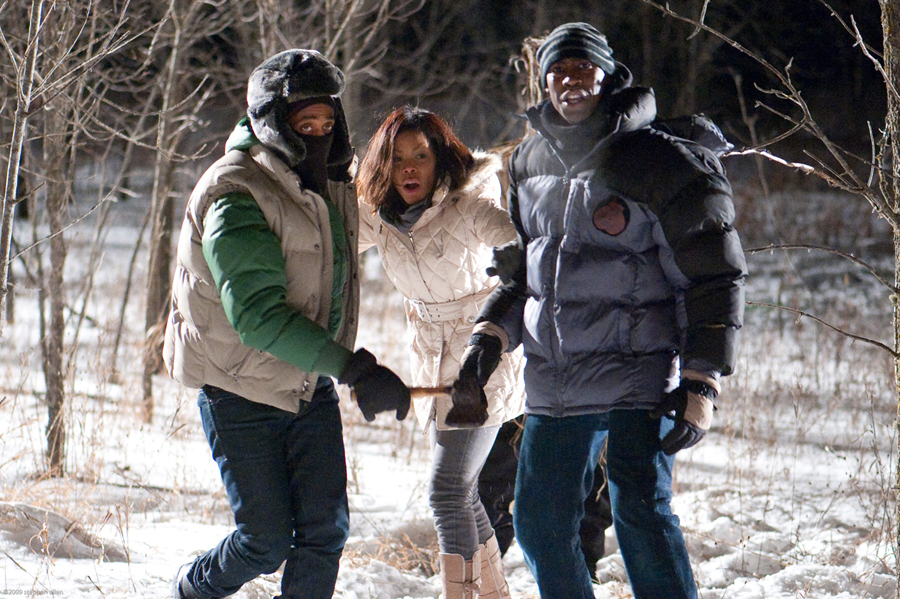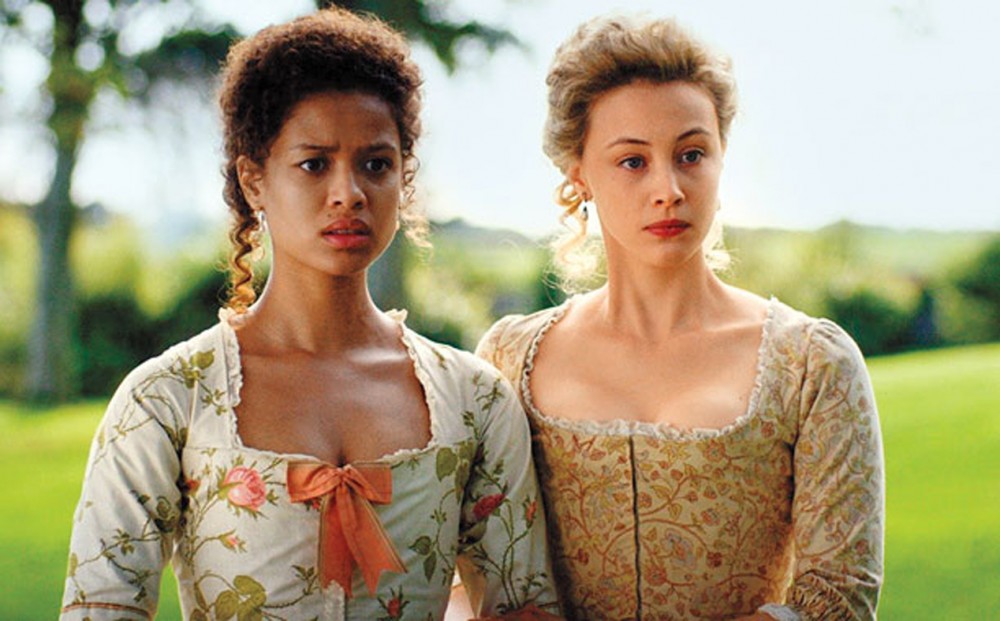[sws_blockquote_endquote align=”” cite=”” quotestyle=”style03″]When we make movies about stories that have something to do with our origins, and our ancestors, and Africa, we ought to be circumspect and understand the import of our fiction. Hollywood has done enough estrangement between the African American and Africa and we sure don’t need black directors deepening the fault. [/sws_blockquote_endquote]
This is a story about money and its concomitant roots of evil. A young generation who wants a hand out and doesn’t entirely care about family relations and an older generation that seem to believe that there are only two lasting bequests they can hope to give their children; one is the wings – the money to advance – the other is roots, roots in tradition and perhaps, the occult, which comes at the terrible expense of human sacrifices of their own blood relatives. Not exactly a win-win situation.
In any case, if I can watch a movie all by myself in the thick of the night, it sure ain’t a horror film. And I watched Inheritance while munching on a big drum stick of fried chicken to boot. The cover may fool you a little, but whatever the intended genre of Inheritance was, I can attest to one part alone, its unintended humor and fine entertainment.
I don’t know much about the daunting craft of horror filmmaking to say the least about why the horror elements of Inheritance failed it. Nonetheless, I can say I enjoyed myself and I found for example, the strawmen to be more silly than scary. I was thinking, I would’ve grabbed some kerosene, a match, and lighted them away.
Maybe this is quite the charm director/writer Robert O’Hara intended. Or rather, his confusion in grasping the exact subject matter only surfaced in the conundrum that Inheritance turned out to be. Besides the okay acting, okay story, this horror film only boiled down to a Black History Month gone bad – short of horror!
It’s a cousin-only family reunion in an isolated house during the worst part of winter. Go figure! A few black cousins whose family date back to the 1800s attempt a meeting with the family elders to claim their inheritance and discover quickly a deadly family tradition and cult in Chakabazz. Along strings a “token” white couple that one of the cousins used for a ride. They will be killed immediately, the first to die, an effort by Robert O’Hara to counter the Hollywood narrative – black people ain’t dying first no more!
The night they arrive at the house, uncle Melvin (Keith David), the leader of the cult, had left a note, some food, alcohol and ganja behind for the cousins to feast on. Through him, the traditional African cult that the slave ancestor Chakabazz had left behind is slowly revealed to the cousins. And by the 50th minute, it becomes obvious that what Chakabazz really wants is blood. And they are the chosen ones.
I may not admire Robert O’Hara’s direction but for one thing – substance. That even in a horror film he attempts a certain level of substance that eludes many directors today. I can also applaud him for not shying away from a story that explores some connection of the African American ancestry and traditions to Africa.
However, the script completely skipped the opportunity to explain why these elders, confounded with the cares of passing down their wealth and prosperity, were possessed to the point of enjoying being sadistic – maniacal almost – rather than doing what they do from out of some necessity, no matter how illogical.
Besides the caution against greed, the film wanders into perplexing territory leaving in its wake, a sheer size of unwarranted humor. Which is what I found entertaining, albeit completely besides the point.
What’s the rest of the message? Don’t accept anything such as a handout? Don’t meet at an isolated location, even if your family elders asked you to? Don’t trust your distant relatives – hell, forget about all that African tradition, they are heathens anyway; stick closer with your immediate African American family?
Overall, Inheritance wanted to be so horror; it wanted a bloodbath so bad that it rushed through the ground rules too quickly and left the story wanting in many places.
When we make movies about stories that have anything to do with Africa, our origins, and our ancestors, we ought to be circumspect and understand the import of our fiction. Hollywood has done enough estrangement between the African American and Africa, and we sure don’t need other black directors deepening the fault.
Otherwise I will recommend it and I feel that if only Robert O’Hara would concentrate on either direction or writing on any one project, he could yet pull a satisfying movie that we can all appreciate.
Director/Writer: Robert O’Hara
Stars: Rochelle Aytes, Golden Brooks and Janae Burney











